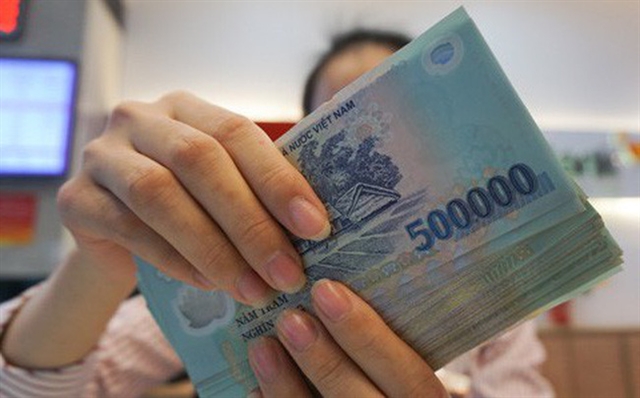Banks have increased their interest rates on certificates of deposit (CDs), bringing them in excess of 10 per cent per year with the aim of mobilising long-term capital.

Banks have increased their interest rates on certificates of deposit (CDs), bringing them in excess of 10 per cent per year with the aim of mobilising long-term capital.
Ban Viet Bank recently announced it was issuing long-term CDs with record high interest rates. Specifically, an interest rate of 10.2 per cent per year is applied for a 60-month CD valued at a minimum of VND10 million (US$430) for individual customers and VND100 million for institutional customers.
The rates for shorter terms of 24, 36 and 48 months are also high at 9.5, 9.8 and 10 per cent per year, respectively.
VIB and VietABank have also issued CDs with high interest rates of 9.1 per cent per year to lure depositors.
The rates at many other banks, such as Sacombank, BIDV, SHB, MSB and SeABank, are averaging at more than 8 per cent per year.
According to experts, CDs are increasingly popular as interest rates are currently some 1-2 percentage points higher than normal savings and they are easy to transfer.
Meanwhile, a bank leader, who declined to be named, said that banks are often willing to mobilise capital via the issuance of CDs with high interest rates when they need capital to fund projects or lend to customers at high lending rates.
Industry insiders also believed banks had to issue CDs at high interest rates as they faced difficulties luring long-term capital.
Many banks are in dire need of long-term capital as their ratio of medium- and long-term capital out of their total capital remains limited. According to State Bank of Viet Nam (SBV) regulations, banks must reduce their short-term funds for medium- and long-term loans to 40 per cent from this year against last year’s rate of 45 per cent.
Banks also need more capital to meet a capital adequacy ratio (CAR) of 9 per cent in 2020 as per the SBV’s Basel II norms. Fitch Ratings estimated the Vietnamese banking system could face a capital shortfall of almost $20 billion to meet the standards.
However, experts are also concerned that the rate hikes would cause a domino effect on interest rates of long-term loans. — VNS





